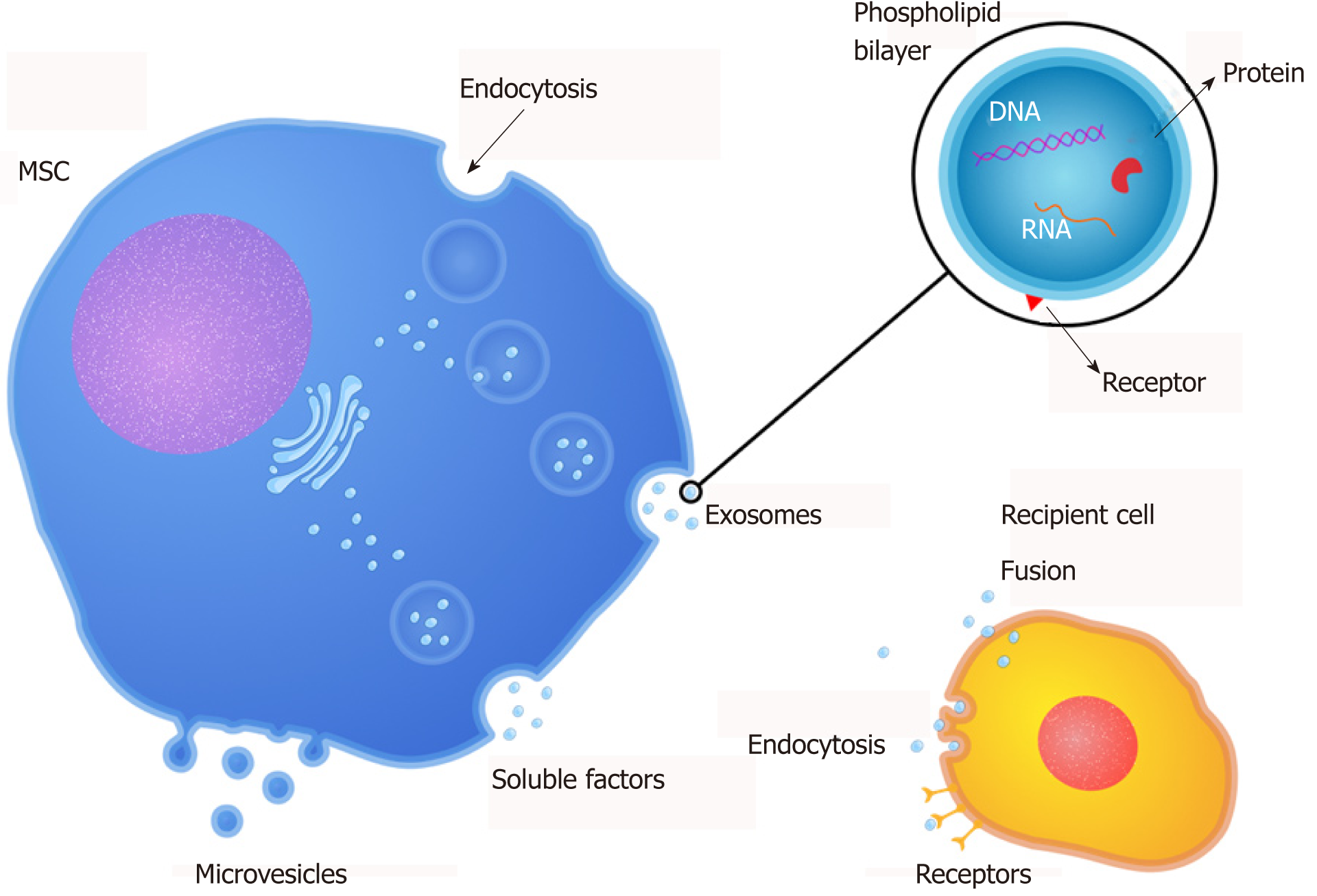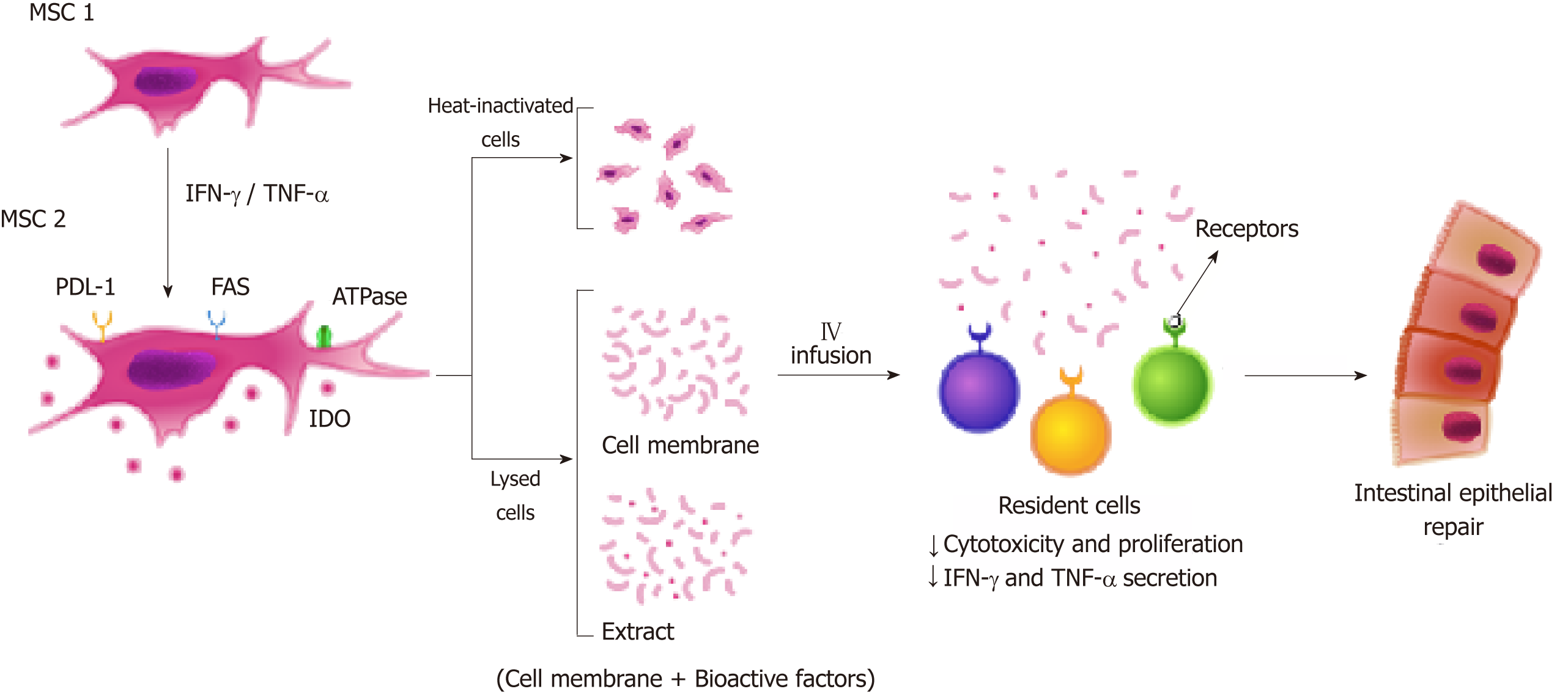©The Author(s) 2019.
World J Stem Cells. Sep 26, 2019; 11(9): 618-633
Published online Sep 26, 2019. doi: 10.4252/wjsc.v11.i9.618
Published online Sep 26, 2019. doi: 10.4252/wjsc.v11.i9.618
Figure 1 Release of bioactive factors by MSC.
MSC can secrete bioactive factors including free soluble factors (cytokines, chemokines, and growth factors) and extracellular vesicles (microvesicles and exosomes) that mediate the therapeutic potential of MSC. MSC: Mesenchymal stromal cells.
Figure 2 Enhanced immunosuppressive properties of MSC in cell contact-dependent mechanism.
Treatment with IFN-γ and TNF-α induce MSC1 to express immunomodulatory molecules (MSC2) that mediate the suppression via cell contact-dependent mechanisms including PD-L1/PD-1 pathway and FAS-L/FAS interaction. To improve MSC homing, new therapeutic approaches are being developed: Heat-inactivated cells and lysed cells (extract or cell membrane). MSC-based therapy may exert its therapeutic effects mainly by cell-cell contact and consequently by interaction with immune cells, establishing a favorable environment for the regeneration of intestinal tissue. MSC: Mesenchymal stromal cells; IFN: Interferon; TNF: Tumor necrosis factor; PD-L1: Programmed death ligand 1; IDO: Indoleamine 2,3 dioxygenase.
- Citation: da Costa Gonçalves F, Paz AH. Cell membrane and bioactive factors derived from mesenchymal stromal cells: Cell-free based therapy for inflammatory bowel diseases. World J Stem Cells 2019; 11(9): 618-633
- URL: https://www.wjgnet.com/1948-0210/full/v11/i9/618.htm
- DOI: https://dx.doi.org/10.4252/wjsc.v11.i9.618














